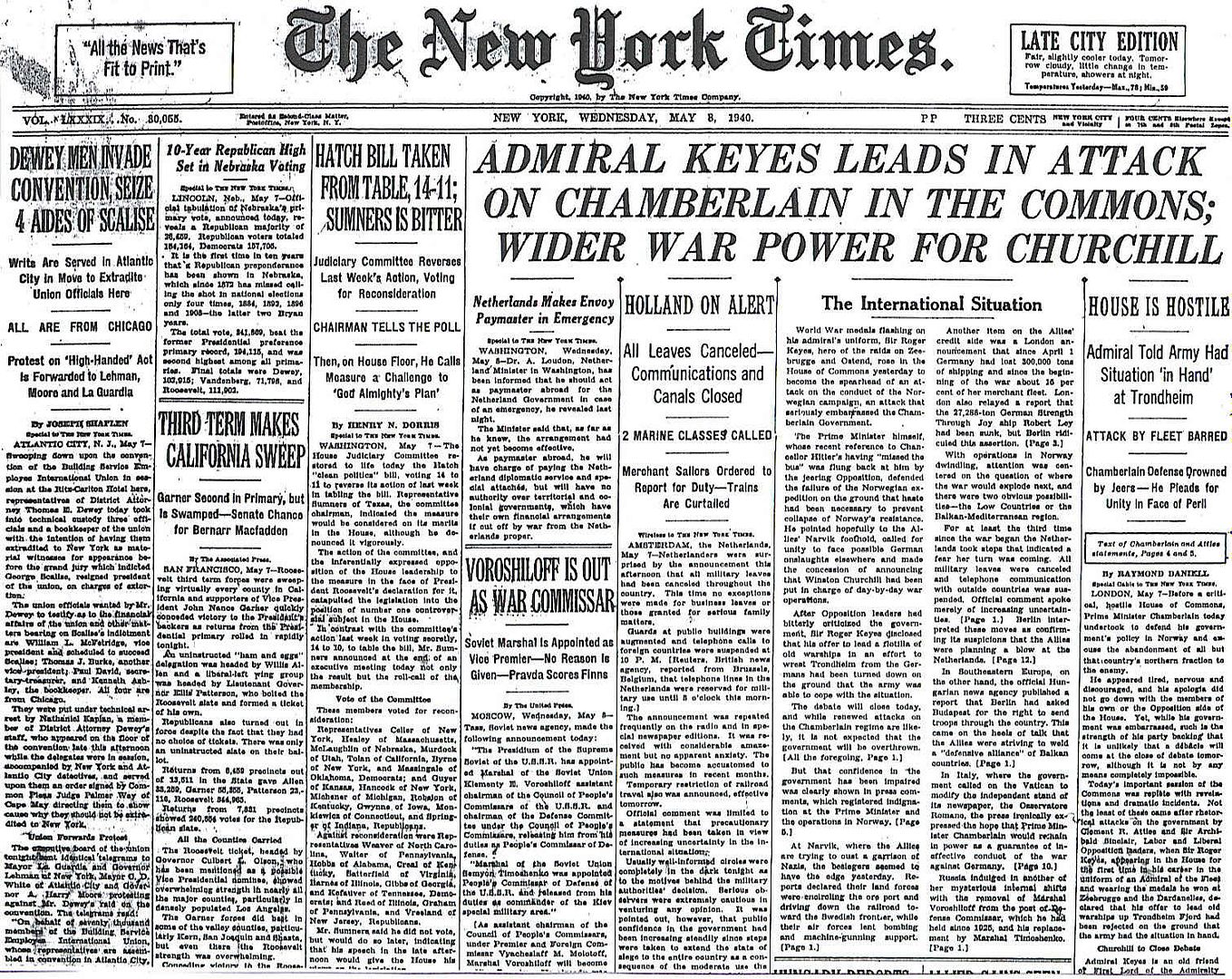
Posted on 05/08/2010 6:05:57 AM PDT by Homer_J_Simpson

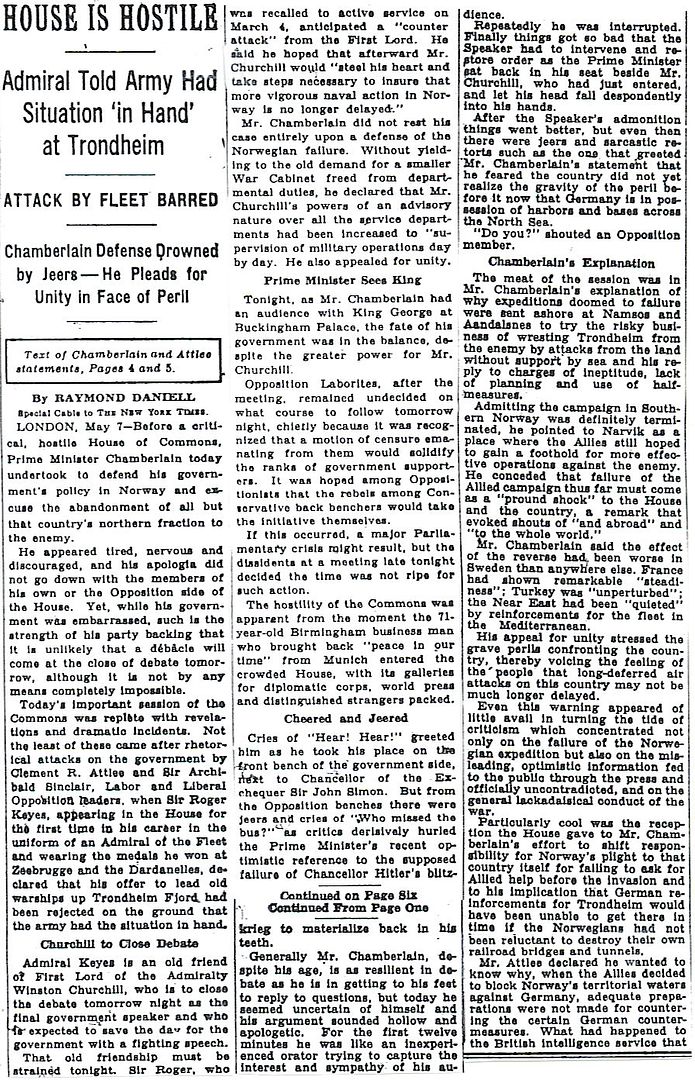
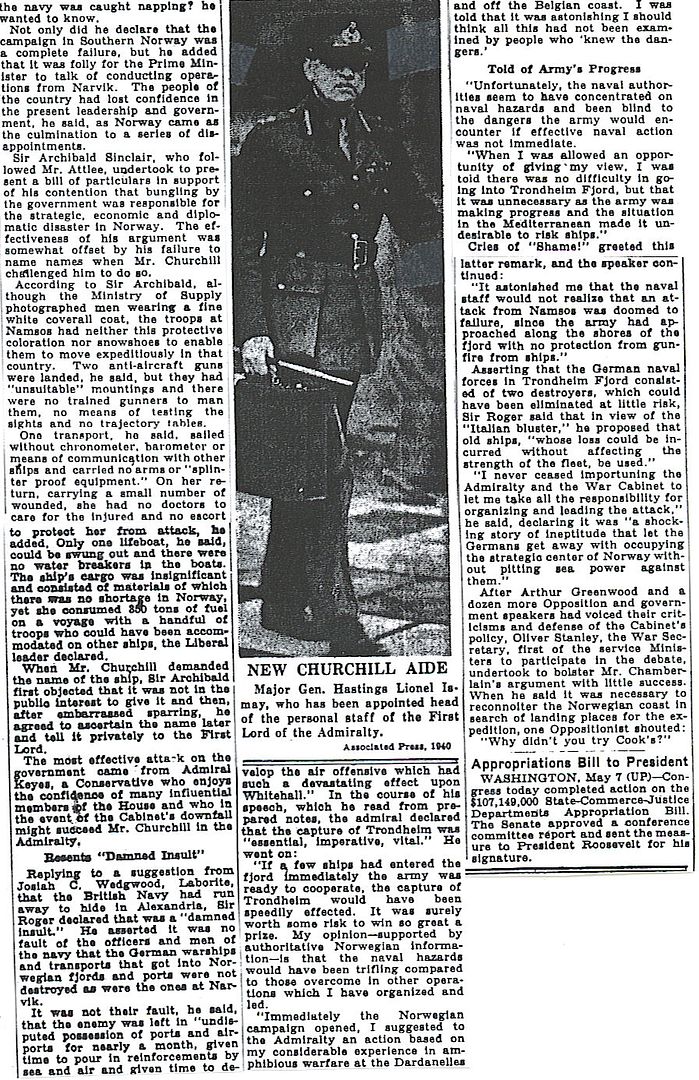
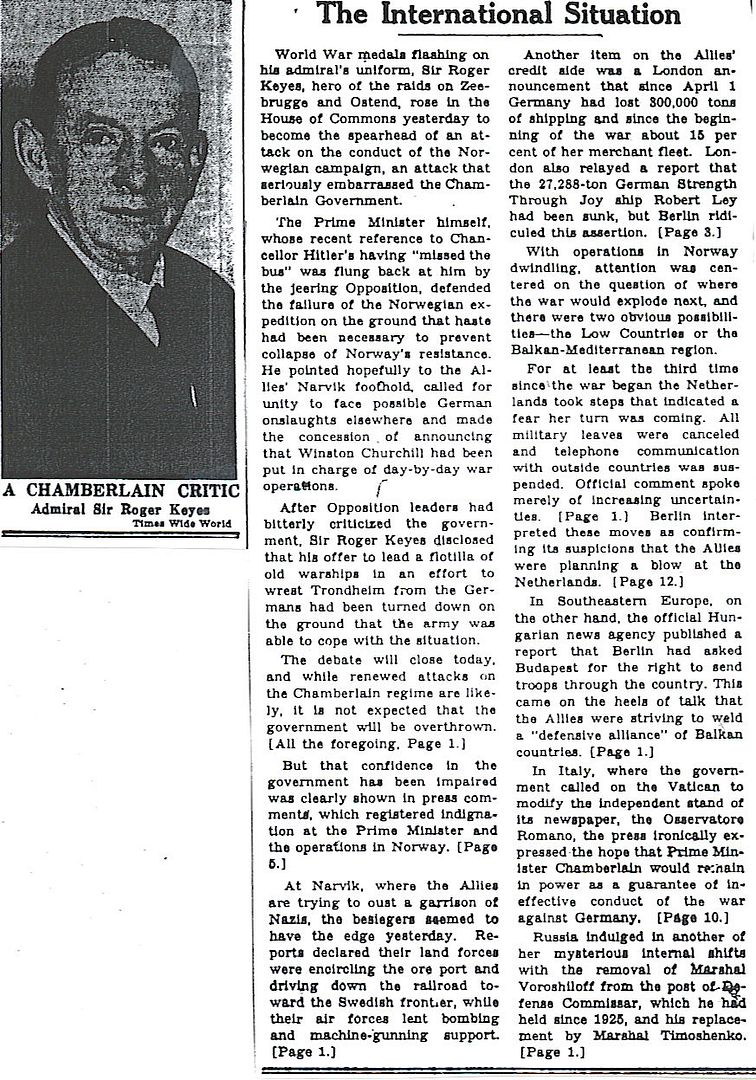
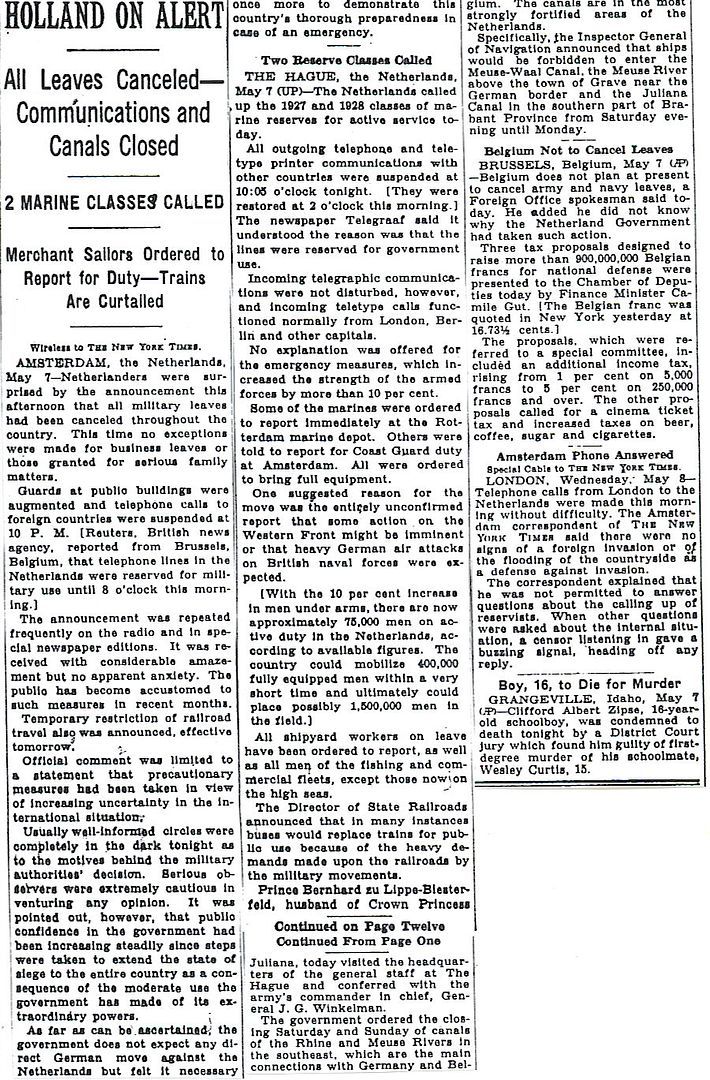
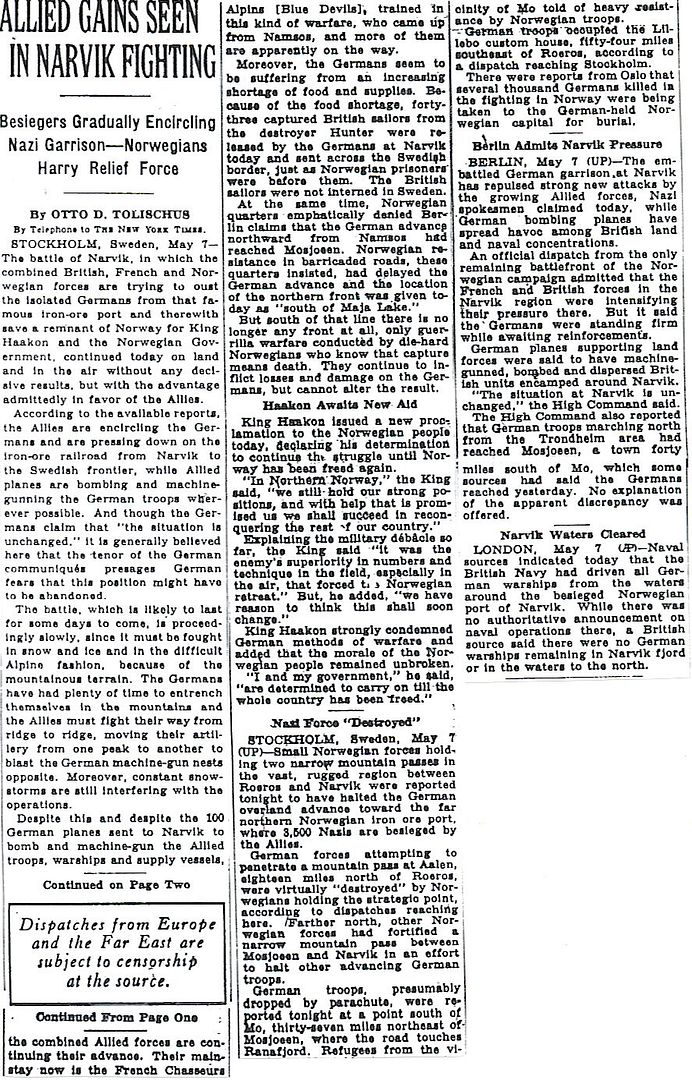
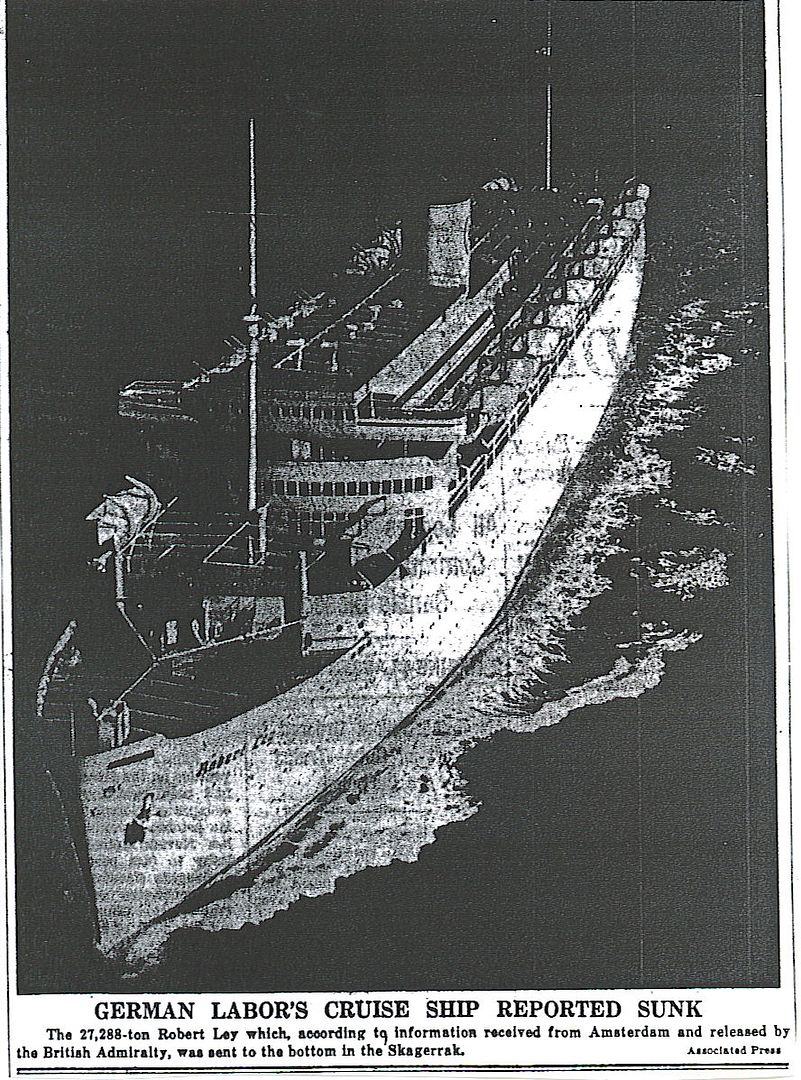
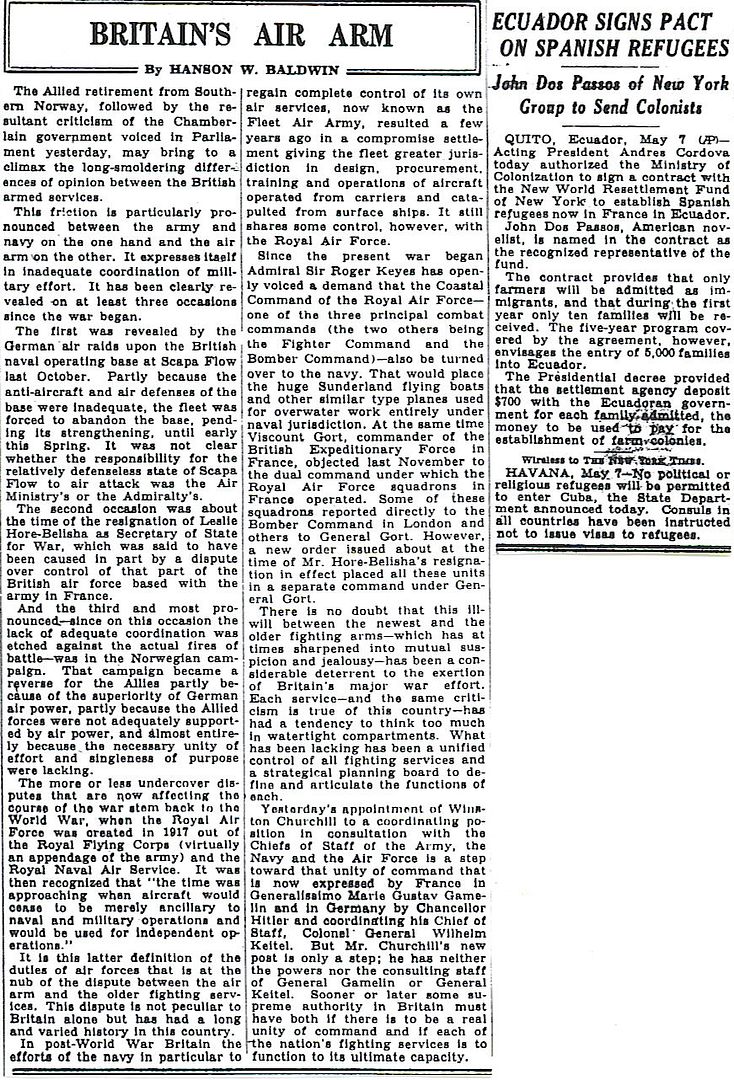
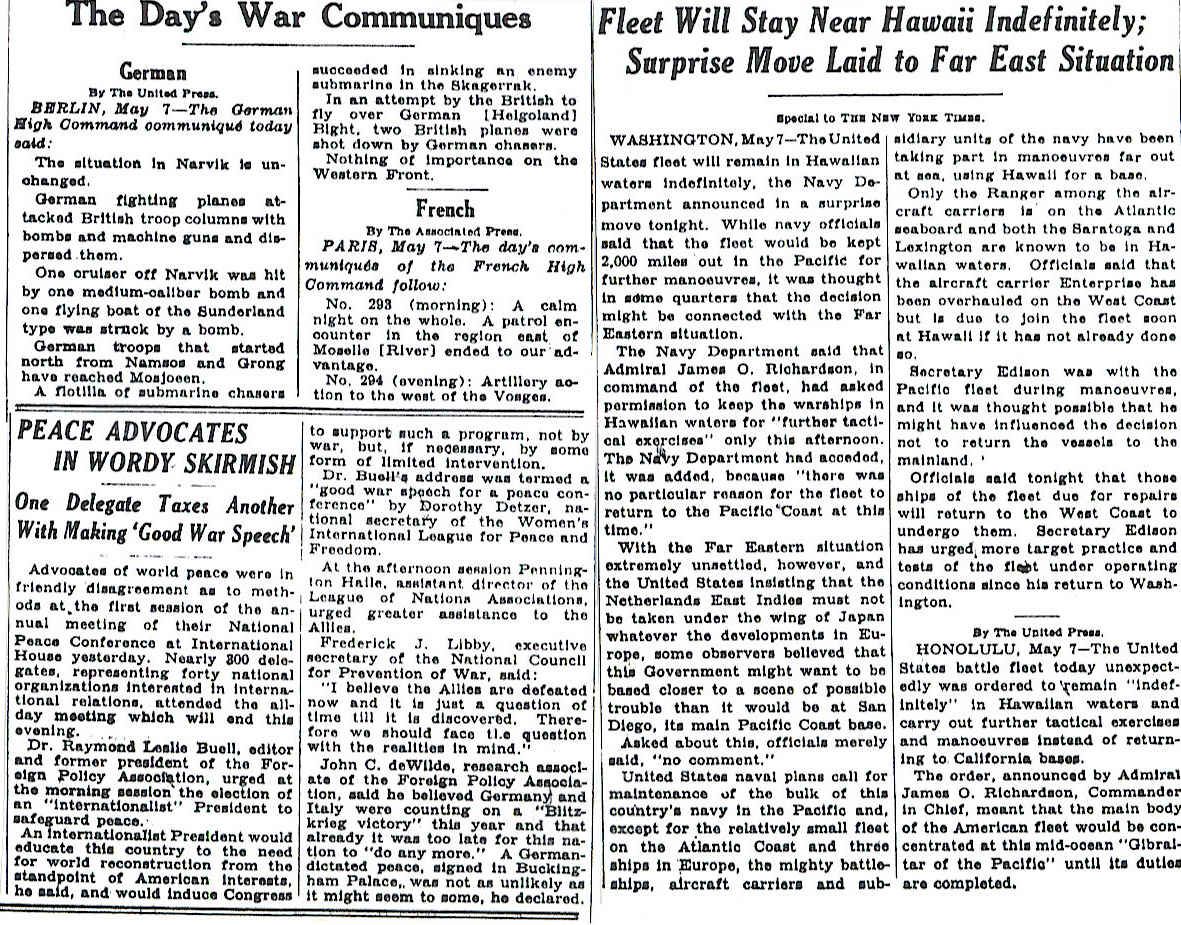
You are correct. If you read the newspapers from late 1941 it is blindingly obvious that war is coming between Japan and the West. The only question was “when”?
That is why we were building up the Philippines as fast as we could. The Dutch and the British were doing the same.
Pearl Harbor was a one off raid. It was important, but it did not determine US participation in the war.
Over the years dozens of books have been written on Pearl Harbor, some claiming President Roosevelt knew more, others that he knew less or nothing about the coming attack.
The two best that I have here, arguing FDR knew plenty and actively prevented Kimmel & Short from being properly prepared are:


The Stinnett book goes into infinite details on all the various codes -- which codes were broken, which were not, which codes were used despite "radio silence," which were not used, how fast our guys could decode them, etc., etc.
It is fascinating reading, albeit a bit technical.
Bottom line: according to Stinnett, there was plenty of data available, and those who made certain that it could not be traced to FDR were promoted and rewarded.
The Victor book takes a much wider historical perspective ("historical perspective" is my "thing," so to speak).
Victor sumarizes and reviews the data showing that "FDR knew," and then goes into wider questions of "why?" and "what was Roosevelt's strategy?"
Bottom line: Victor says that FDR expected the attack on Pearl Harbor, but did not expect anywhere near the levels of destruction Japan achieved.
In that sense, Roosevelt was as shocked as everyone else.
But the Japanese attack was necessary -- indeed had been "provoked" by FDR -- in order to get an aroused and united America into the war.
Nothing else would do that job.
Now, since we still have 19 months before "The Big Day," which means plenty of time to argue and resolve all these questions ahead of time, my suggestion is everyone pick out a couple of these books, study them carefully, and then come back prepared for extended debates.
;-)
I’m thinking that you have it right, but I’d also love to know what the conversation was, at the brass level, relating to the possibility of Japan attacking us at Pearl before the event. Even with a few minutes warning, practically all the ships would have been lost, is my guess. The radar fiasco was huge, but other preventive steps should have been taken in my mind, given the size of the fleet at Pearl.
Actually, Day of Deceit would have been a better reference to use in the Wikipedia post. In fact Stinnett also uses information from the Crane Files which is an important source when it comes to code breaking in this time period. I admit however that Stinnett also fails to mention that the Japanese changed their AN code in December of 1940 thus rendering the progress that OP-20-G had made on it by October of that year useless (also in the Crane Files). It is a rather important omission in my opinion.
The point of what I’m saying though has nothing to do with how Richardson felt, or what FDR knew. The problem is the Wiki article is making a claim based on a reference that does not make that claim at all. This is a false reference which puts the entire article in question. Like I said, this is why I don’t use Wikipedia for anything except macro information, the details can often be crap.
The bottomline is that there is no smoking gun to link back to FDR. Opinions and some evidence that calls into question who knew what prior to the event are all we have.
Pearl just seems like a dumb move on our part with apparently only radar for protection. It may have been planned that way.
Actually, we were late in the Philippines. The reason for this was the WPD felt that it could not be defended successfully. At the last minute Marshal and the recently added Eisenhower had a change of heart and began to mass B-17s to send to the Philippines with the thought that bombers could be the primary defenders. Realize that at this point we still had not figured out the best use of these big bombers so we basically were approaching it from the Billy Mitchell strategic plan laid out in “Winged Defense”. At this point it was even thought that these bombers could defend themselves and did not need to be flown in defensive formations or with escorts. But any materials to bolster the Philippines were late. The bombers that came into Pearl on December 7 that the radar operators thought they were seeing when it was in fact the first Japanese wave, was the first shipment of the build up of bombers headed to Clark Field. So when the Japanese attacked the Philippines the defenders had to work with the B-17s, fighters, and troops and native militia that was already there prior to the decision to build it up.
Now here’s where everything went wrong on that island. On November 30th there was a call to initiate WP-46. This was the war plan for war against Japan. In the case of MacArthur on the Philippines he was to initiate War Plan Orange (same plan) and consolidate and fortify around Manila and Bataan. He however, made the decision that with his militia (which even he said he needed another year to get them up to Army standards) he could defend on the beaches. This would be a huge error on his part. His forces were not equipped or trained to hold the beaches and when they fell back they had to leave much of their supplies behind too. Compounding the problem, the President of the Philippines with MacArthur’s approval enforced the laws that restricted commerce between the provinces. This further reduced the amount of supplies that could be evacuated to the Bataan peninsula when as the Japanese were moving south, MacArthur had finally decided to initiate War Plan Orange. The direct result of this was that the men on Bataan had about 1/4 of the supplies they would have had if MacArthur would had done what he war ordered to in the first place.
At any rate, you are right that we had made the decision to build it up. Unfortunately, we should have made that decision now instead of late 1941. Maybe then we could have really done something there. As it was I think General King and General Wainwright did a hell of a job holding out until April and May of 42 respectably.
Understood.
I consider Wikipedia to be the "current state of conventional wisdom," meaning: right or wrong, it's probably what most reasonably informed people believe.
Doesn't mean it's right, but is a good place to begin any serious discussion.
Point is: if we disagree with Wikipedia, then we usually disagree with "conventional wisdom" and so the burden falls on us to demonstrate and reference why our understandings are superior to theirs.
If you'll pardon a Civil War analogy -- that's why I always start with Wikipedia as my skirmishing line, before advancing the main-force heavy infantry of more scholarly references.
Sometimes lightly armed skirmishers alone can scatter a poorly prepared defensive position. Then no need for more heavy-duty research. ;-)
As for defects in Stinnett's thesis -- I doubt if your point, assuming it's even true, invalidates Stinnett's entire argument.
What obviously is true is that a major effort was made to cover-up any evidence of Roosevelt's advanced knowledge.
Stinnett did great detective work uncovering the remains of whatever was originally there, imho.
"No smoking gun" -- True.
But lots of circumstancial evidence suggesting FDR not only knew, expected it and, indeed, "provoked" the attack so that he would have an arroused and united country to lead on to total victory.
Imho, any other course of action would have resulted in some form of defeat.
And if you doubt me on this, then consider the sorry results in, say, Korea and Viet Nam, where our leadership was vastly inferior to FDR's.
"Everybody knew war was coming..."
Not true. You need to follow Homer's posts every day, to see the "latest results" from the Gallop Pole of American opinions. ;-)
The fact is that Americans were nearly 100% sympathetic to the British and French allies -- only about 4% favored the Germans. But Americans also overwhelmingly did not want to get sucked into another "foreign war."
Furthermore, Franklin Roosevelt had specifically and loudly promised during his re-election campaign of 1940 that he would not send American boys to fight in any "foreign war."
Americans believed him, and so voted for him -- again.
What "everyone understood" was that if America was attacked, then it was no longer a "foreign war."
That's what Pearl Harbor was all about, imho.
Therefore, are you saying that those who died in the attack (on our side) were sacrificed by FDR to the greater goal of going to war and winning that war?
You are not being supportive of FDR if that’s true, right?
If true, FDR is a mass murderer, at best. This would be one of the greatest crimes ever.
unique: "...If true, FDR is a mass murderer, at best. This would be one of the greatest crimes ever."
Yes and no.
Yes, imho FDR knew, expected and indeed "provoked" the Japanese attack on Pearl Harbor.
No, he certainly did not expect Japanese would do serious harm to US forces there.
What he expected was that massed battleships could make quick work of a few attacking Japanese planes.
He as yet had no real concept of how utterly vulnerable old battle-wagons were to air attacks.
Yes, Roosevelt needed that attack to bring a united America into the war.
No, his refusal to keep Kimmel and Short informed of the coming threats does not make FDR a "mass murderer" (!) or Pearl Harbor "one of the greatest crimes ever"!
In FDR's mind, Kimmel & Short should have been able to handle whatever the Japanese sent them, with minimum losses.
But I'd wonder if any such suggestions expose some hidden agenda of your own, an agenda which has nothing to do with understanding the truth of history, does it?
I’m not saying Stinnett’s work isn’t valid, I just found that one detail a bit bothersome since it is an important point.
As to Wiki. I don’t use it as a skirmishing line because I don’t think it is good for that. It is only a survey of the battlefield and from there a real plan can be constructed using real tools.
;-)
I always enjoy our exchanges.
Serious discussion / debate takes serious time. Hunting through old books for just the right quote often takes hours, and sometimes proves fruitless.
Way easier, whenever possible, to cite a quick reference from Wikipedia. And more often than not, that's enough to establish a relatively simple point.
I might also mention that I have noticed whole Wikipedia articles getting re-written, sometimes right in the middle of a discussion where I'm trying to look up data, and from one time to the next the article changed -- sometimes clearing up the very point I was hoping to research.
I kid you not, it's happened. Spooky... ;-)
That's just another reason not to use it. While it will change to meet your point, sometimes it will change to counter what you said. When that happens you will make a point and back it up with a wiki point and when someone goes to look at that point it makes it look like you don't know what you are saying. It's like the old Dennis Miller skit about the public having access to the brakes on the old trains in movies. I'd hate for my post to suddenly loose all its credibility because Gus thought he saw a woodchuck. Most of the references I make are based on books that I have right here. I usually remember generally which book, and around what part of it I read it so it doesn't take me long to find it again (usually). I have a rather extensive library and I keep growing it every day. I have a friend of mine that just got promoted to full colonel so he's moving to a new station and he is giving me all his "Roots of Strategy" books. I only have volume 4. I'm looking forward to digging into these. Tijeras_Slim also gave me his old books that he wasn't reading anymore. I'm a veracious reader so I love it. I do understand your point though that it is quicker to just Wiki it. It's probably why you can come up with an extensive reply when I usually don't have time to put together a reply that I would like. It's a matter of preference I guess. I do, like you, enjoy our exchanges though. They are always thoughtful and delve into the crannies that most others are not aware of. We are going to have fun come October-December of next year when we really get into the degree of detail FDR knew and what he did with the information. We are almost in agreement on it, but there are some details we are going to volley around. :)
What sort of agenda would that be?
If FDR knew that Pearl was going to be attacked, he is a mass murderer, period. I'm still not sure that he did know and there is no smoking gun, so you are simply speculating as well. But, if it's true, placing sailors and soldiers in harms way without direct access to known intelligence relating to the potential enemy and, in fact, virtually encouraging those soldiers to not take defensive measures with ships/planes is an act of a madman. Doing that all in the name of swaying public opinion is beyond the pale.
On the other hand, he was a democrat.
Sorry to disagree about FDR, but when it comes to Pearl Harbor, I’m a ‘grassy knoll’ kind of guy.
First, you can’t treat the attack on Pearl Harbor, or the events immediately leadinbg up to it in a vacuum. FDR spent almost all of 1940 trying to get into a war with Hitler. He split the North Atlantic into two defense zonea, and covered British convoys in the Western Atlantic before handing them off to the Brits. He had the Navy shadow, and report to the Brits, positions of German U-boats. Toward the end of that year, and before the Germans responded, the U.S Navy was depth charging U-boats. He enacted lend lease. All of those would make the U.S a co-belligerent under international law. But Hitler didn’t bite.
So he turns his attention from Germany to Japan. From their point of view moving the Pacific fleet was a provocation. And coupled with FDR’s aggressive ‘diplomacy’, it wasn’t a move the Japanese could ignore. Using the Japaneswe two stage occupation of French Indochina as a justification, Rooevelt cut off Japanese accesion to U.S steel, iron, andoil. We supplied something like 90-95% of Japan’s oil. And his price for turning on the tap was not merely Japanese withdrawal from Indochina, but China, where the Japanese had been at war since 1937 [1931 if you include Manchuria].
That left the Japanese with two choices. Cave. Or find another source of oil. That source was Indonesia, which meant war with the Dutch, and their current allies, the Brits. It also meant war with the U.S.
When the Japanese sailed for Pearl, they had a 90 day oil reserve. Period. So I believe FDR forced a war.
Do I think he knew Pearl was the target? Probably. There was plenty of info out there. But the way that info was not passed to Kimmel and Short, or was passed in , shall we say, imprecise language, leads me to that conclusion. But I also think FDR believed his Hawaiian commanders would spot the Japanese in time to sortie out to battle [no one really knew how effective the Japanese doctrine of carrier warfare would be at the time], and not suffer the losses that occurred.
I have really enjoyed following this discussion of the ongoing Pearl Harbor debate. Every few months we have another round. In case anyone missed it there is a follow up article about the Japanese reaction to the move in today’s (5/9) thread. Image #9, I believe. It is interesting that, with all the anticipation of the coming events in Europe, the most heated back-and-forth centers on the Pacific. This story about the Pacific fleet almost didn’t make it into the thread. I was following a front page story to page 5 or something and noticed the Pacific article off to the side. It looked provocative so I moved the view finder over a little and pressed print.
I’m really glad you caught this one then. No matter where you are on the details leading up to Pearl Harbor, one thing is clear to all and that is there is a lot of little items and events that led up to it. They are happening now as they have been prior to this day and building up to an eventual conflict. The covert, and overt violations of the Washington and London Treaties, the agreement not to fortify the island bases like that of Guam, the sanctions and eventual embargoes, they all are pieces of an overall puzzle that this decision to leave the fleet at Pearl played a roll in the build up of pressure in this region.
When did you ever expect better from Democrats?
In Roosevelt's defense, Kimmel and Short did receive an official "War Warning."
So the obvious question is, why did they not respond more appropriately to that warning?
The answer is, because the "warning" was both vague and misleading.
It did not lead them to prepare for air attacks on Pearl Harbor, but rather for sabotage against ships & planes.
But this was the "war warning" used after-wards to discipline Kimmel & Short for dereliction of their duty.
Now, if you stay-tuned to Homer's future posts, you'll see there is a long history -- before Pearl Harbor -- of attacks on US naval ships, with FDR asking for ever increasing responses.
And how did the American public and Congress reply? They said, "Ho-hum, we don't want to be dragged into any foreign wars."
That's because Americans understood FDR was playing a dangerous game with German U-boats in the Atlantic, and were not so surprised when our guys got occasionally attacked.
Pearl Harbor was of a whole different order of magnitude, and was well beyond what Americans were willing to accept as an "accident of war."
Final point (for now) -- the Japanese would have canceled their attack on Pearl Harbor, if they believed the US was on alert and ready for them.
That's why, imho, it was so important for the Americans there to appear relaxed and vulnerable.
unique: "if it's true, placing sailors and soldiers in harms way without direct access to known intelligence relating to the potential enemy and, in fact, virtually encouraging those soldiers to not take defensive measures with ships/planes is an act of a madman."
In my humble opinion, Roosevelt's leadership saved the lives of many hundreds of thousands of Americans, plus many millions of our allies' and enemies' lives as well.
The sacrifice at Pearl Harbor, while far more that FDR expected, turned out to be well under 1% of the total Americans killed in WWII.
Still, I agree that Kimmel and Short could have been, and should have been better warned and better prepared.
Here we are debating Pearl Harbor -- 19 months away -- while the world as we knew it is even now ending in Europe. Oooops
;-)
Disclaimer: Opinions posted on Free Republic are those of the individual posters and do not necessarily represent the opinion of Free Republic or its management. All materials posted herein are protected by copyright law and the exemption for fair use of copyrighted works.